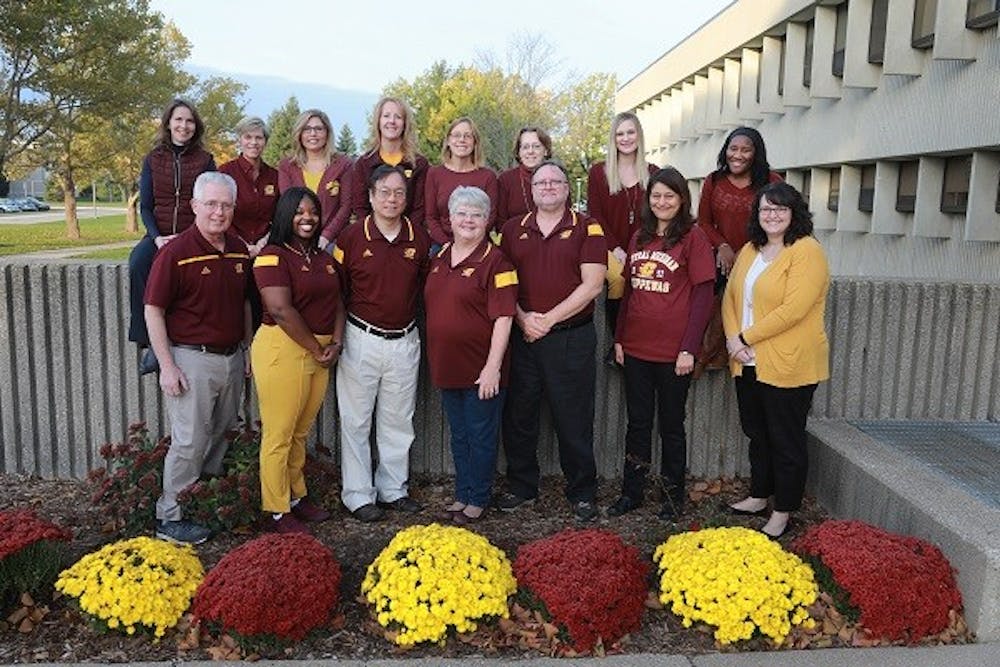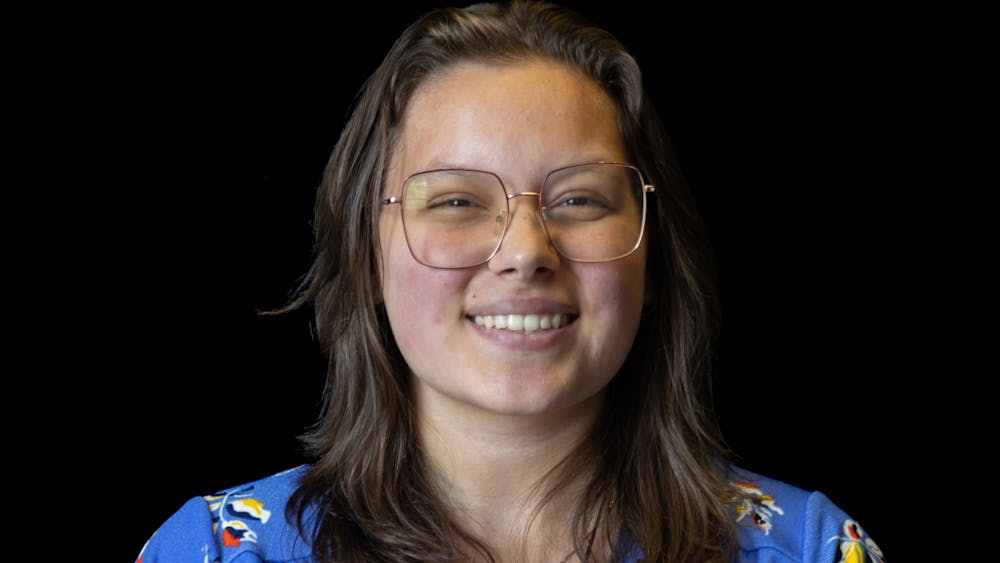Counseling Center has no waitlist in Fall 2018, serves 162 more patients
The addition of workshops, relaxation sessions and staff lead to elimination of waitlist

(Courtesy Photo | CMU Counseling Center webpage)
CMU Counseling Center staff poses for a photo outside Foust Hall.
In previous semesters, the Central Michigan University Counseling Center has had a waiting list of sometimes more than 100 students at a time. However, after adding workshops, de-stressing sessions and two more counselors, the waiting list was non-existent.
Melissa Hutchinson, interim director of the Counseling Center, said there wasn’t a waiting list in the Fall 2018 semester. According to a Central Michigan Life article, the waiting list peaked at 108 students in October 2017.
Hutchinson said the Counseling Center was able to serve 162 more students in Fall 2018 than Fall 2017. In the fall semester, a total of 849 students were served. As of Jan. 14, 968 students have been served by the Counseling Center. She also said there were 100 fewer urgent appointment requests last semester compared with Fall 2017.
The biggest change to Counseling Services this semester is the addition of Therapy Assistance Online, or TAO. TAO is an online service for anyone with a cmich.edu email address. It is completely confidential, Hutchinson said.
“This is self-enrolled self-help,” Hutchinson said. “Students can sign up for this, on their own, without Counseling Center involvement.”
Students can sign up for TAO on a computer through the Counseling Center webpage. After making an account, users can access the program online or through a mobile app.
The mobile app has “pathways,” or programs for anxiety, interpersonal relationships and communication and acceptance and commitment therapy. There is also a mindfulness library with audio clips to practice meditation and mindfulness. If notifications are enabled, the app also provides self-care tips once per day.
TAO’s website allows users to submit “logs” which are like journal entries. There are logs for a variety of issues such as anxiety, behavior, mindfulness and substance use. Everything is completely confidential, so nobody, including CMU or Counseling Center staff, can see users’ activity.
Tony Voisin, associate vice president for student services, explained a few other services available to students.
CMU’s Care Team creates individualized support plans for students who are having a tough time. The team involves CMU faculty and staff from many offices and departments. If a student is struggling, anyone can fill out a “care report” to alert the Care Team, who can contact the student and get them the help and support they need.
Psychiatry services are available through CMU Health. Voisin said there is a psychiatrist and a physician assistant available to see students for mental health needs. Psychiatry services are available 8-5 p.m. Monday through Friday in Foust Hall room 249.
Hutchinson said the Counseling Center’s graduate assistant Margerae Jackson will continue to do outreach events across campus. Last semester, she went to popular buildings on campus to talk to students and inform them of Counseling Center services. Jackson’s most popular outreach event was “Throw it Away Thursday,” where she had students write negative thoughts on a piece of paper and throw it away, then pick up an inspirational quote to replace it. Hutchinson said that event will continue this semester, along with other similar outreach activities.
“We know that not all students get to the Counseling Center,” Hutchinson said, “so our goal with our outreach is getting to students. We know that prevention is the key, so we are really going to focus on that.
Some Counseling Center services have changed for the spring semester. All support groups will continue running as normal, as well as “Walk-in Wednesdays.” The workshops available are “Relax and Regroup,” a mindfulness class, and “The Body Under Stress,” a class that teaches students about the physiological aspects of stress. “Relax and Regroup” is now a weekly drop-in class, while “The Body Under Stress,” will remain a 4-week course. Other drop-in sessions include an “art and creativity” session, and “art journaling” session, and “Pause for Paws,” which allows students to hang out with therapy dogs.
Students can make an appointment at the Counseling Center in-person at Foust Hall room 102 or over the phone at (989) 774-3381. Urgent appointments are always available, whether there is a waitlist or not.
Students can learn more on the Counseling Center webpage or on the Counseling Center’s Facebook page.




